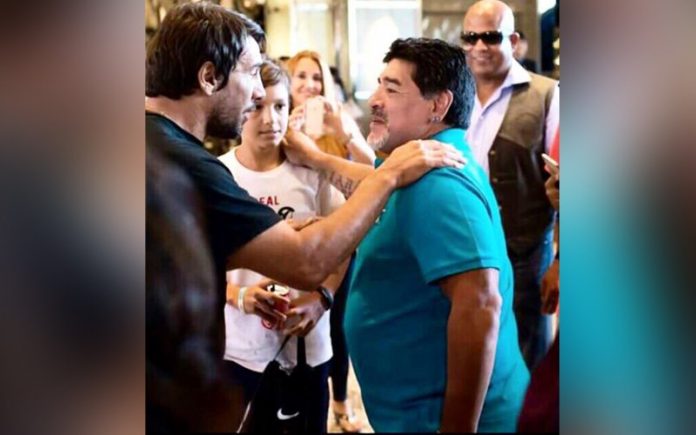
KUALA LUMPUR: Few know about football legend Diego Maradona’s deep relationship with his parents and former Cuba president Fidel Castro, whom he considered his “second father”.
Maradona’s parents launched him on the journey to football’s summit and he is said to have wept uncontrollably when his father Don Diego died in 2015, and his mother Dona Tota in 2011.
When Castro, whom he met in 1987, died on Nov 25, 2016, a devastated Maradona flew to Cuba to mourn.
The brilliant, troubled superstar took his last breath last week, coincidentally on the fourth anniversary of Castro’s death.
A former Maradona partner in Argentina’s youth squad, striker, Luis Pablo Pozzuto, recalled his idol’s love of family.
Luis, who is a coach at the football academy, Kuala Lumpur Youth Soccer (KLYS), said when he last met the “D10S” in 2015 for dinner at a hotel here, all he spoke about was “family and football”.

The 53-year-old former Kelantan and Penang player (2001-03) and coach of several teams in the local leagues said the three-hour conversation was a “Maradona moment, impossible to forget”.
He said the icon, who was here for the opening of his Boby & Maradona Gold Diamond outlet in NU Sentral, Brickfields, spoke passionately about his parents, brother Raul and his grandson Benjamin.
Luis said Don Diego stood by his son throughout a turbulent career that saw a mix of magic on the field and tragic drug and alcohol abuse.
When Don Diego’s health deteriorated, Maradona rushed to Argentina from Dubai to be with him, having regretted not seeing his mother in the days before she died.
Don Diego was a factory worker who once refused to let his son turn professional because there was not enough money in the sport.
Maradona, the eldest of eight siblings, talks in awe about his homemaker mother in his autobiography, relating how she would skip meals just so her kids could eat.
Her passing made national news in Argentina, with the country’s biggest newspapers and TV stations running obituaries.
Maradona’s brothers also became professional footballers, although none played at international level.
Raul was briefly with Boca Juniors and Spanish club Granada before ending his career in the US. Hugo played in Spain with Rayo Vallecano and in Austria with Rapid Vienna before making it big in Japan.
Luis said Maradona had asked him during the dinner to get a pair of Puma boots for his grandson Benjamin, the son of Manchester City striker Sergio Aguero.
He said Argentina’s No 10 made young footballers dream and that KLYS trainees held a moment of silence for him at Kelab Aman yesterday.
Argentina Ambassador to Malaysia Manuel Balaguer related stories about the life and legacy of Maradona, also known as El Diego.
“He was not just a towering icon in Argentina, he was made for the world.
“He lit up the world for football lovers and his magic will live on,” he said, adding that Maradona played at a time when the sport wasn’t globalised, but the Argentine’s reputation was.
There was no internet and everyone got to see the “golden boy” on television at the 1986 World Cup in Mexico, how he effectively won the tournament for his country on his own.
On the suggestion by Marseille head coach Andre Villas-Boas to FIFA to withdraw the No 10 for all competitions to honour Maradona, Luis said:
“Maradona has said he was against number 10 being retired as he wanted it to be an inspiration to youngsters. Young players would dream of wearing the number after seeing Maradona starring in that jersey for Napoli and Argentina.
“Maradona belongs to everybody; everybody wants to be like him.”



